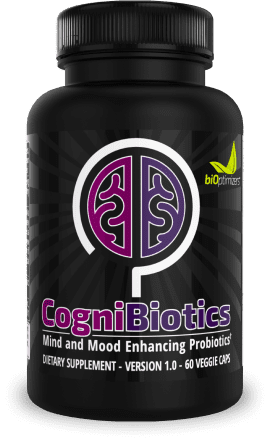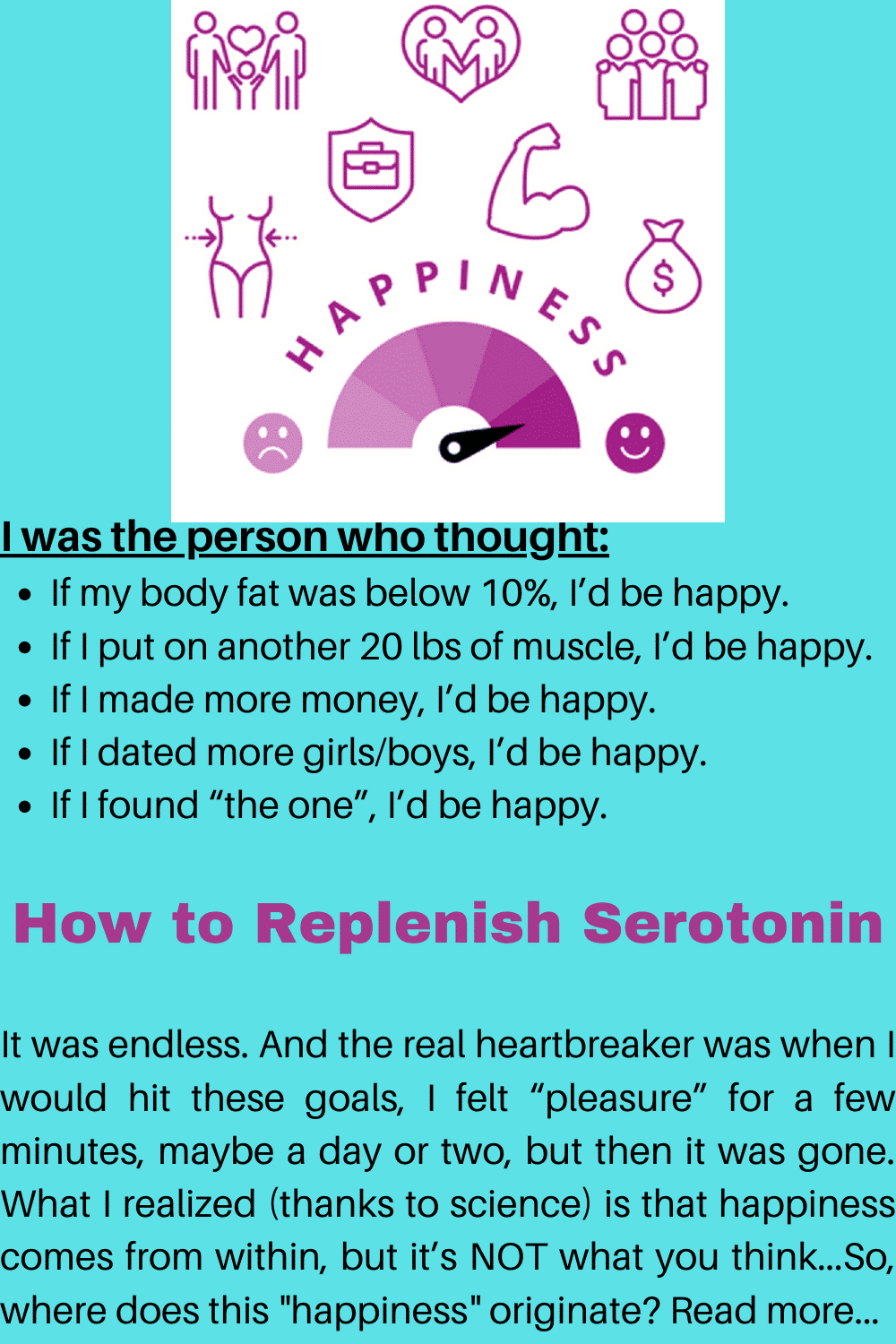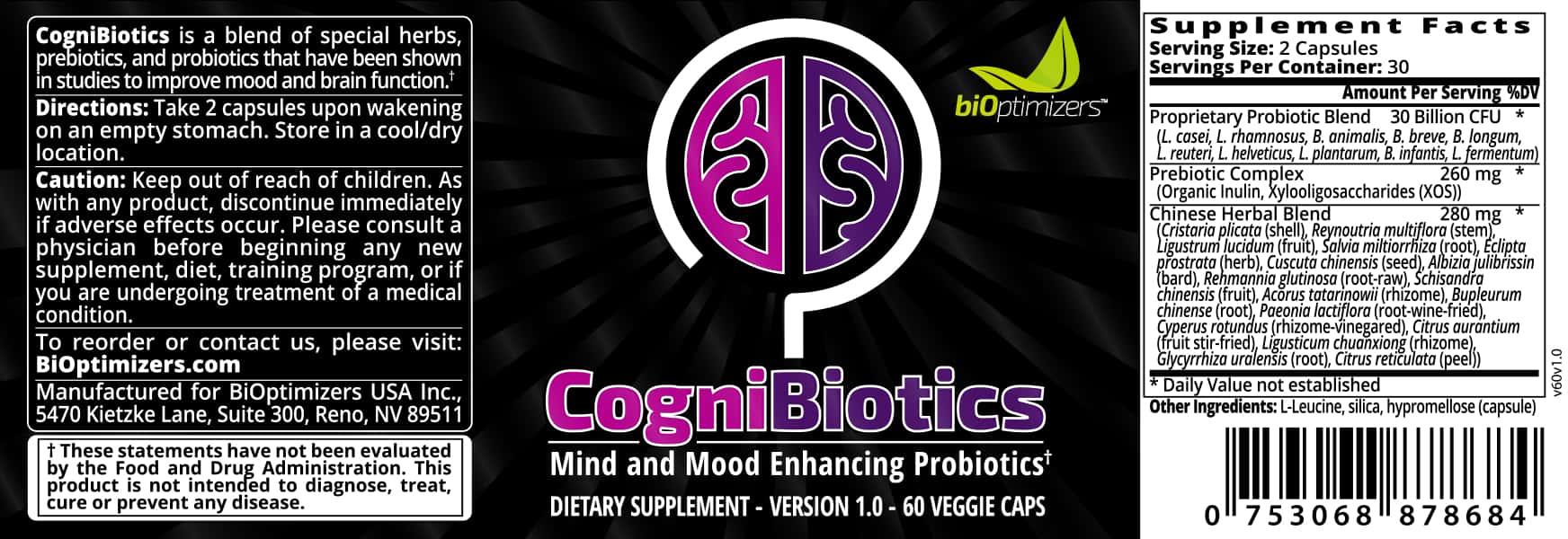If you need to learn more about how to replenish serotonin in your body, you’ve come to the right place. An extensive dive into serotonin explains how your happiness levels are determined by serotonin levels.
Page Contents
What is Serotonin?
Serotonin is known as the happiness hormone and its scientific name is 5-hydroxytryptamine or 5-HT. If your serotonin levels are too low, you can experience insomnia, depression, and even anxiety. It is therefore important that your body produces enough serotonin.
Serotonin is an integral part of everyday life. While the average adult harbors only 5 to 10 mg of serotonin in the body, that small amount affects almost all of the approximately 40 million cells in the brain.
How Does Serotonin Work?
In your brain, communication continually takes place between millions of cells. This communication takes place via neurotransmitters. Some make you feel anxious, angry or scared, and others make you euphoric or happy.
Well-known neurotransmitters are adrenaline, oxytocin, serotonin, and dopamine. Where adrenaline and dopamine have a stimulating effect, serotonin has a calming effect. The more serotonin, the less sensitive we are to rejection. So you can say that serotonin production boosts our self-confidence.
Although serotonin is a neurotransmitter, about 95% of the total amount of serotonin is produced in your intestines. The other 5% is produced in your brain. Serotonin is an important neurotransmitter that affects the functions of your body, such as your mood, appetite, sexual activity, sleep, and movement.
In other words, your intestines and intestinal flora have a huge impact on how you feel. Interestingly enough, men produce up to twice as much serotonin as women. This explains why women are more likely to suffer from a serotonin deficiency.
The great thing is that you can influence these hormones yourself.
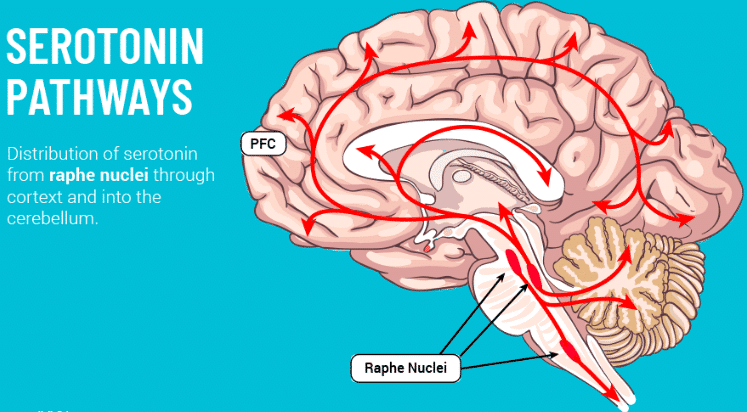
What Does A Serotonin Deficiency Mean?
We speak of a serotonin deficiency when there is a shortage of the neurotransmitter serotonin which is responsible for aspects of a person’s physical and mental health. There are a variety of reasons why the production of serotonin is too low leading to a deficiency.
Common Serotonin Deficiency Symptoms
When your body has a serotonin deficiency it can have serious consequences.
Getting angry often, unusual sensitivity to pain, the urge to eat carbohydrates and drink alcohol, constipation, and digestive problems.
When enough serotonin is produced in the brain, it helps us to feel positive, happy, calm, and safe. In the brain, it regulates mood, social behavior, libido, sleep, memory, and learning ability. When the serotonin level is too low, it can cause negative or worried feelings and irritability. Due to a shortage, you can feel pessimistic, sad, and suspicious. It can even lead to panic attacks, depression, anxiety, or other health problems.
Warning Signs That Your Serotonin Levels are Too Low
The happiness hormone Serotonin is involved in many different body processes, so there are just as many possible symptoms. Basically, it can all be brought back to mood, emotions, and depression. In addition, there are links between serotonin and sleep quality, and there is a link between serotonin and libido.
Insomnia:
Serotonin regulates your day and night rhythm, among other things. For example, you can experience insomnia with a shortage of serotonin. Your body needs serotonin to make melatonin. Although serotonin is used in many psychological processes, one of the primary uses is in the production of melatonin. In fact, the highest concentration of serotonin is in the pineal gland body: the source of melatonin.
Melatonin is particularly sensitive to light; consequently, the pineal gland body is at the heart of the circadian rhythm of the body. Melatonin also plays a role in inhibiting sexual activity and increasing body heat.
Craving Carbohydrates:
The urge to eat sweets and foods high in carbohydrates. We know that carbohydrates directly influence the level of this neurotransmitter. Carbohydrates are known to increase levels of Serotonin in the brain due to the greater availability of Tryptophan.
This is especially true for sweets and starchy foods. Examples include pastries, chocolate, fruit candy, chips, burgers, and other snacks. So people with low serotonin levels often feel like eating a lot of carbohydrates.
They also often eat food compulsively. If you are a compulsive eater, the serotonin level will only rise temporarily. You will feel better for a moment. This is addictive. Incidentally, this does not necessarily have to come from serotonin: Carbohydrates often contain gluten, which also has an addictive effect.
But shortly after eating, the level drops significantly. This drastic drop causes drowsiness, hostility, anxiety, and depression.
Anxiety:
Using brain scans, scientists can demonstrate a link between serotonin and anxiety. People who are often anxious release a smaller amount of this chemical. This can be seen in the parts of the brain responsible for impulses and the control of emotions. But a shortage of serotonin is not the only factor that can cause these problems. Because three other neurotransmitters play a role in anxiety disorders: gamma-aminobutyric acid, dopamine, and epinephrine.
Emotional Hypersensitivity:
Low levels of serotonin can make you more sensitive than usual. An innocent remark from someone else is suddenly taken very seriously and considered a personal attack. Everything is getting worse than what it actually is.
The Cognitive Abilities Deteriorate:
Research has shown that an appropriate amount of serotonin improves cognitive ability. It also helps to compensate for a limited cognitive effect. It is believed to play a role in all minds. But actually, it has the greatest impact on memory. People with little serotonin are more likely to have memory problems.
Digestive Problems:
Surprisingly, almost 95% of the serotonin is produced in the gut and not in the brain as you might think. In the brain, however, we use the 5% that is also made there. Because when the shortages of serotonin are resolved, the digestion in people with irritable bowel syndrome often works normally again.
Fatigue or Exhaustion:
Serotonin can have a major impact on fatigue. A constant feeling of listlessness, lack of energy, and fatigue can result from too little serotonin. Fatigue can also be a symptom after stopping serotonin medication.
Some people with chronic fatigue have a low serotonin level. When the deficit is repaired, it can often be seen that the energy level improves remarkably. Fatigue or exhaustion can result from many different conditions. But you shouldn’t rule out the possibility that the problem may be related to serotonin. In the long term, chronic fatigue causes an even greater decrease in serotonin.
Changes in Libido:
Among other things, it has an effect on libido (sexual desire). There is a direct link between a greater desire for sex and low levels of serotonin.
A lack of serotonin is linked to a high libido. This will undoubtedly have to do with the fact that the body wants to produce serotonin, and therefore needs the excitement, the horniness, and the orgasm. At the same time, someone will be less able to connect emotionally with the other person. Obviously, this is not a good recipe for a satisfying relationship.
On the other hand, too high a level of serotonin is associated with lower libido, but a higher emotional connection with the partner.
In addition, it also affects the postures and physical capabilities required for sexual activity.
Premature Ejaculation
Premature ejaculation is often thought of as a mental illness. Of course, the psyche will have to do with this, but we can also trace it back to the amount of serotonin in the body. Premature ejaculation may have to do with serotonin, but it is not necessarily the only cause. Other factors may also play a role, such as feeling insecure about yourself, insecure about sex, and psychological problems.
Sensitivity to Pain
There is a clear link between serotonin levels in the body and pain tolerance. A low level of serotonin would increase the sensitivity to pain, even with very small pains. A higher level of serotonin ensures a lower sensitivity to pain, so a higher pain threshold.
Sensitivity to Sounds
Some people can become very sensitive to sounds. Softer and mediocre sounds are suddenly experienced as very disturbing by people who have a low serotonin level. Hearing these sounds suddenly makes you feel very uncomfortable due to the stress response of the body.
Weight Gain
Appetite is also regulated by serotonin. Among other things, it gives you the feeling that you have eaten enough. If you have a shortage of serotonin, you will not get that feeling and you will tend to eat more. When your serotonin levels are up, you have less need for calories.
We have previously established that people with a low serotonin level have a great need for carbohydrates and sweets. Serotonin production, as a result of this excessive food intake, is addictive. This can make you gain weight. This is not necessarily always the case, because it may be related to many other factors, including metabolism. But it is certain that the lack of serotonin, in combination with overeating, leads to a significantly lower energy level and a high risk of depression.
Download your free copy of Lasting Weight Loss
Depression:
Many researchers believe that depression and other mood disorders are rooted in a serotonin imbalance. Since serotonin affects your mood, a chronic deficiency can eventually lead to depression. The happiness hormone serotonin is subsequently less present in depressed people. Selective serotonin reuptake inhibitors, or SSRIs, are popular antidepressants that try to ease this imbalance. SSRIs prevent serotonin reuptake by nerve cells and thus increase the availability of the neurotransmitter in the brain.
What Does Selective Serotonin Reuptake Inhibitors Do?
- Selectively inhibits the synaptic reuptake of serotonin in the presynaptic neuron, increasing the availability of serotonin in the central nervous system in the synaptic cleft;
- Have a mechanism of action that is not known exactly;
- Cause long-term postsynaptic receptor modification and a decrease in the number of 5-HT 2 receptors.
- Selectivity may decrease at higher doses.
Effects
- Reduction of depressive complaints: normalizing the mood and other characteristics of depression such as loss of interest and guilt;
- Reduce the risk of recurrence of depression by half to two thirds (with continued treatment after recovery has occurred);
- Reduction of anxious feelings, panic, and compulsive symptoms;
- Inhibition of ejaculation;
- Inhibition of appetite (fluoxetine).
How to Increase Serotonin Levels
Fortunately, there are ways to produce serotonin and so restore your happiness hormone.
How Is Serotonin Produced?
To understand how serotonin is produced in your body, here’s a quick chemistry lesson. Serotonin can only be produced from the amino acid tryptophan.
While serotonin is a major neurotransmitter in the brain, about 98 percent of the body’s serotonin is in platelets, mast cells, and the digestive tract. Although both forms of serotonin are produced from the amino acid tryptophan, only those neurotransmitters synthesized in the brain can affect the brain: serotonin formed in the body cannot cross the blood-brain barrier.
While serotonin cannot cross the blood-brain barrier, tryptophan can, and almost everything is converted into serotonin. Serotonin synthesis is a two-step process. First, tryptophan hydroxylase enzymes convert tryptophan to 5-hydroxytryptophan using oxygen, iron, and THB as co-factors. Second, AAAD and PLP enzymes combine 5-hydroxytryptophan to serotonin.
Serotonin is more sensitive to food than any other neurotransmitter in the brain. However, the effects are not immediate.
Carbohydrates can especially increase the levels of tryptophan in the body. These foods activate the release of insulin which causes the body to absorb all amino acids in the blood except tryptophan. Consequently, tryptophan remains in the bloodstream until it crosses the blood-brain barrier and can be converted into serotonin. Vitamin B-6 can also affect the rate at which serotonin is produced.
Dietary sources of tryptophan include chickpeas, chocolate, milk, brown rice, sunflower seeds, pumpkin seeds, sesame seeds, and bananas. Enzymes ultimately help convert tryptophan into serotonin. These proteins are broken down into amino acids. The metabolic intermediate 5 HTP (5-Hydroxytryptophan) is then made from the amino acid tryptophan. Your body then converts 5-HTP into the substance serotonin.
How to Replenish Serotonin Levels Then?
It is possible that your body (temporarily) produces less serotonin. Here are some serotonin boosters you can start with immediately to increase serotonin levels naturally:
Pay Close Attention to Your Diet
Because serotonin is a substance that is also affected in the gastrointestinal system, it is advisable to pay close attention to your diet.
First of all, you should remove fast food and junk food from your diet. This does not provide enough vitamins and minerals to live a healthy life.
It is also best to omit sugary foods such as soft drinks and sweets from your diet.
It is better to live on a diet rich in vegetables, fruits, eggs, nuts, fish, and meat, as this provides a good amount of vitamins and minerals that the body needs to function properly.
Good fats are also essential to perform well. The brain needs these fats to think better, but also to perform other functions of the brain better. One of these functions is the production of serotonin.
Meditation
With the help of serotonin, we are able to sit quietly and calmly and we can let go of all thoughts. So by meditating you increase the serotonin level. But that’s not all: meditation also increases the sleep-promoting hormone Melatonin, which is ultimately made from serotonin.
When both serotonin and dopamine levels are increased, and you want to take meditation one step further and enter a deep state of bliss, it is possible.
Exercise
Exercise is extremely healthy for the human body.
Exercise and/or participation in a sport is actually the best way to balance our hormones and neurotransmitters. This way your serotonin levels are also balanced when you regularly exercise or move around.
By maintaining a good sports schedule, where you exercise 2-3 times a week, you will soon notice that you feel a lot better. When exercising you release important substances that the brain needs to function optimally.
It will also have an indirect effect because sports will greatly increase the production of Tryptophan. Tryptophan enters the brain via the bloodstream and will be used to produce serotonin. This process not only takes place during exercise but also long after you stopped.
Sunlight
Vitamin D is essential to keep our body and brain healthy. Today we, unfortunately, do not get enough sunlight because we work from an office and work out at a gym, for example. Many people, as a result, suffer from vitamin D deficiency.
Sunlight on your skin will cause extra production of serotonin. Your skin has a built-in system which under the influence of sunlight, releases Tryptophan into the bloodstream. After arrival in the brain, this is also used directly as a primary building block for serotonin.
Exposing your skin to the sun has even more advantages. This way your body gets enough Vitamin D, an important factor in the production of Dopamine, another happiness hormone.
Of course, you have to be careful with exposure to the sun. Always avoid the sun during the hottest times of the day. Although exposure to the sun always carries risks, completely avoiding the sun also has serious consequences. Problems such as bone growth due to poor absorption of calcium and depressed feelings due to lower production of dopamine.
So take a walk around the block more often. This can be difficult in months where the sun is less present, such as autumn and winter. During these months, you can take vitamin D supplements to fix the deficiency.
Social Dominance
A study within a group of monkeys points to an increased serotonin level in combination with social dominance. The dominant monkey had a higher serotonin level than the rest of the group. As the dominance hierarchy in a monkey falls, the serotonin in the body also drops.
There has also been a human study. It was found that the people who received a high dose of Tryptophan, the building block of serotonin, became socially more dominant. But it turned out that it also worked the other way around: Social dominance also causes higher serotonin.
So it turns out that it comes from two sides: Serotonin makes you dominant, and dominance, in turn, creates more serotonin.
What Are You Thinking About?
You can also control the production of serotonin with your mind. This is called ‘priming’ in English, and the principle comes from neurological science.
Priming aims to generate pleasant thoughts, by remembering a certain word. For example, when you think of the word ‘pleasure’, your thoughts will involuntarily seek out all kinds of associations and bring to mind pleasant memories. This will make you happy and cheerful and will increase the serotonin level.
You can also use priming to make yourself more dominant. With words like ‘confident’, ‘dominant’, and ‘strong’, your brain immediately evokes all kinds of associations that immediately put you in a different mood. The serotonin level rises, after which the process can maintain itself, as it were.
Vitamin B3, B6, and B12
Vitamin B3, B6, and B12 are all good choices if you want to increase your serotonin level. Vitamin B6, in particular, can help to boost serotonin production. Melatonin also benefits from this, so you will probably sleep better.
Vitamin B6 can be found in legumes, potatoes, cereals, fish, eggs, and meat.
Do you want to be completely sure that you get all the B vitamins in the right balance? Then choose a dietary supplement. It may be more expensive but choose good quality. The cheap jars of supplements are often very poorly absorbed by the body; they are a waste of your hard-earned money. Good quality supplements are a bit more expensive but also a lot more effective. And that is what you want, right?
Slow Releasing Carbohydrates (low GI – Glycemic Index Carbs)
We have seen before that your body produces Tryptophan in the body. This tryptophan, which is the raw material for the production of serotonin, is transported via the bloodstream to the brain for the final transformation to serotonin.
The moment there is too much insulin in your blood, however, much less tryptophan will be transported. And how does insulin get into the blood? Because of too high blood sugar. And we get high blood sugar by eating sugars and fast-releasing carbohydrates.
In order to take full advantage of the tryptophan, it is important to avoid sugar as much as possible and to eat only slow-releasing carbohydrates. This keeps your blood sugar level in balance so that no insulin is produced. This leaves room in the blood to transport the tryptophan to the brain.
Low GI carbs (index < 55) include, but is not limited to rolled oats, quinoa, carrots, sweet potato, kidney beans, red lentils, pinto beans, chickpeas, butter beans, green lentils, nuts, plums, grapefruit, peaches, apricots, apples, oranges, strawberries, pears, grapes, pumpernickel, sourdough rye, and mixed grain bread.

Omega 3
The main Omega 3 fatty acids EPA and DHA have a major influence on the production of serotonin. EPA increases serotonin production, while DHA affects serotonin receptors by increasing the fluidity of your cell membranes.
Omega-3 fatty acids are found in fatty fish such as mackerel, salmon, eels, herring, and sardines.
Not a big fan of fish? No worries.
There are other ways to get enough omega-3 fatty acids.
Algae oil is a 100 percent vegetable alternative and is widely used by vegans. You can swallow it in the form of a capsule.
Another option is fish oil. Various studies show that high-quality supplements offer the same benefits as fish, but without the disadvantages of pollution.
On days when you don’t eat oily fish, take 2 grams of fish oil. This way you still get the essential fatty acids
If you take Omega 3 fatty acids for a long time, for example in the form of capsules, your serotonin level will eventually increase.
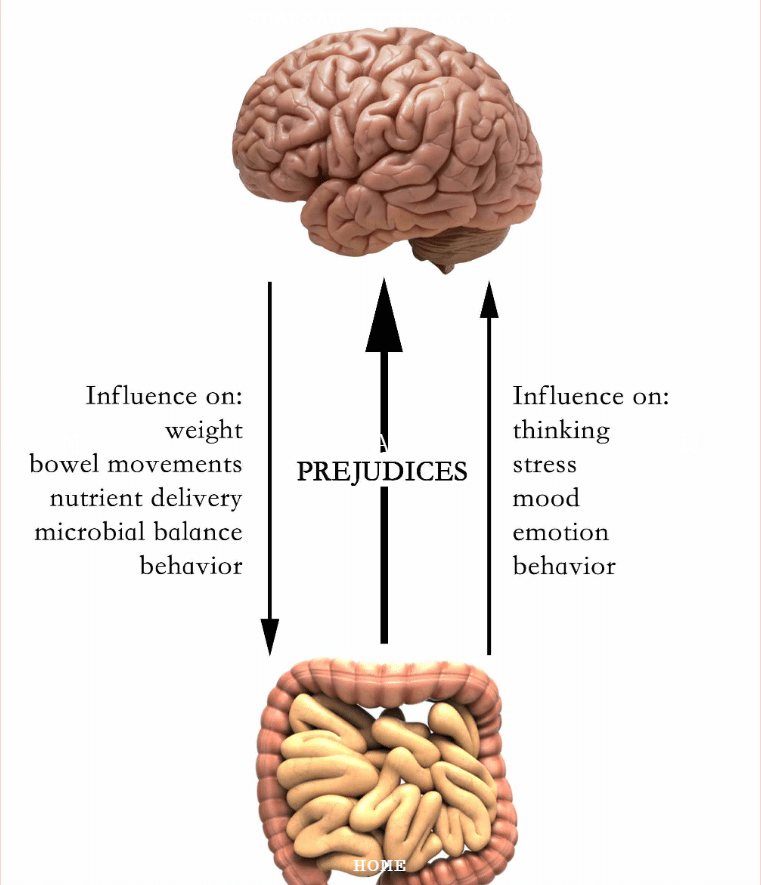
Probiotics
Our intestines are filled with an enormous amount of bacteria, this is called intestinal flora. Your intestines contain between 400 and 600 types of bacteria that together form your intestinal flora. Healthy intestines contain many good bacteria that can withstand attacks from harmful bacteria.
As long as the relationships between these remain good, the healthy intestinal flora will enable your body to function optimally. But a disturbance in this gut flora can, in extreme cases, have disastrous consequences. With an imbalance, unhealthy bacteria get the upper hand and serotonin production can be compromised.
According to studies, gut bacteria act on the brain in multiple ways to improve stress, anxiety, and mood issues.
It may be hard to believe that a different gut bacteria composition allows you to deal better with stress, have a better mood, and even treat anxiety and depression.
However, it is not just some studies that demonstrate this; an explosion of studies shows this and gives us insight into the fascinating world of the gut-brain connection.
The presence of the gut-brain connection is logical when you consider that the gut bacteria produce hundreds of neurochemicals, which the brain uses to regulate physical and mental processes, including learning, memory, and mood. The gut bacteria produce as much as about 95% of the serotonin supply. The intestines are therefore also called “the second brain.”
And so we now know that we can change the composition of our gut microbiome in such a way that it positively influences our mood and brain function.
As we know by now, beneficial bacteria do not only benefit the body, but also the mind.
So far, studies have shown us that they improve digestion, counteract obesity, diabetes, and inflammatory processes.
Just like fermented food, they have the potential to reduce anxiety and depression and appear to change the brain (and thus the mood). Bacteria affect humans for a lifetime, from birth to death. Even after death, they are busy: cleaning up tissues.
How Long Does It Take To Restore Dysfunctional Gut Flora?
Research on the influence of gut bacteria on behavior, food choice, and mood showed that other foods can change the microbiology of the gut within 24 hours.
Research also shows that significant changes in the composition of the gut bacteria can take place within 6 days after switching to a new diet. This depends on your motivation and the current state of your intestines.
Eat Foods Rich in Probiotics
Probiotics are live bacteria and yeasts that support a good digestive system.
Long before probiotics supplements came on the market, the health benefits of fermented foods were well recognized (kimchi, sauerkraut, pickles, and yogurt). The Chinese ate fermented cabbage 6,000 years ago.
The type of fermentation that supplies beneficial bacteria to the diet is lactic acid fermentation.
During this process, the beneficial bacteria convert the sugar molecules into lactic acid and the beneficial bacteria multiply in this way. This lactic acid protects the fermented food from pathogenic bacteria because they create an environment with a low pH value. This kills the harmful bacteria that thrive at a higher pH. Although supplements are useful, it is still better to get the good bacteria through food; that way the body can best use them.
Probiotic bacteria maintain the intestinal wall and act as a natural antibiotic, virus, and fungicide. They regulate immunity and control inflammation. They even improve nutrient absorption.
Turmeric
Turmeric is a spice extracted from Curcuma Longa. Don’t have turmeric at home? No worries, because curry powder is a compound spice and contains a good amount of Turmeric.
The active ingredient in Turmeric, curcumin is an antidepressant due to its positive effects on the production of both dopamine and serotonin. Curcumin also works positively from the other side: This substance inhibits the activity of an enzyme called Monoamine Oxidase. This enzyme is involved in the breakdown of serotonin, dopamine, and norepinephrine.
When taken by mouth, turmeric is quite low in bioavailability. This means that it is not optimally absorbed by the body. The absorption is better if it is combined with black pepper.
So, when cooking, always use turmeric in combination with black pepper.
5-HTP Supplements
There are supplements that can help make more serotonin. 5-HTP is an example of this. This supplement is absorbed in the stomach and intestines and can produce more serotonin when absorbed.
You can take this supplement if you currently find that you are producing too little serotonin and are feeling depressed. Research has indicated that this is an effective means for solving the shortage of serotonin in a part of the population
Limit Alcohol Consumption
By drinking alcohol, serotonin in your body will drop sharply after about 45 minutes. Also, the production of Melatonin is disrupted, so that you will not enjoy a good night’s sleep if you have been drinking. Of course, you will sleep, but you will not rest as needed in order to operate well the next day.
There is also a link between alcohol and aggressive behavior. This is linked to the aforementioned drop in serotonin so that you no longer have a natural brake.
Ultimately, this is caused by the disruptive effects of alcohol on the metabolism of serotonin.
Grab a Free Copy of “Why You Need To Stop Drinking” – NO email required
Always Have Breakfast
Most serotonin is made two hours after sunrise. It is therefore important to start your day with a balanced breakfast. Your body then has sufficient nutrients with which it can start producing serotonin immediately.
Tryptophan needs complex carbohydrates to be absorbed by your brain. You can get them by eating, for example, fruits, nuts, peas, beans, whole grains (oatmeal, quinoa, whole-grain bread, and whole-grain cereals), and vegetables.
Drink More Water
Water plays an important role in the daily intake of nutrients. Without water, the body does not work optimally and the production of neurotransmitters can be disrupted. You are safe with 1.5 to 2 liters of water per day.
Some benefits of water:
- Water prevents damage to the DNA
- Water adds extra energy to food, it increases the efficiency of the blood cells
- Water regulates body temperature and restores your normal sleep pattern
- Water reduces the urge for addictions such as smoking and drinking alcohol
- Water helps you to reduce stress and depression
- Water extends the time that you can concentrate
- Drinking water keeps you from feeling hungry or thirsty
- Water deficiency reduces libido and strengthens morning sickness in pregnant women

Hydrotherapy:
How a warm bath boosts your biorhythm and serotonin
Did you know that a warm bath also affects your biorhythm and serotonin production?
This means taking a bath regularly is a good idea if you suffer from gloomy moods and depressed feelings.
The crux lies in tweaking your biorhythm. Think of it as an internal biological clock that helps you follow a 24-hour rhythm.
Your biological clock responds to all kinds of signals: light, eating behavior (your blood sugar level), physical activity, and body temperature.
Your body temperature rises during the day to drop again in the evening. This is a signal for your body to make more of the ‘sleep hormone’ melatonin.
In depressed people, however, this temperature rhythm is often flattered, disturbed, or slowed down.
By increasing the temperature of the body by taking a bath, you can tweak your biological clock. This has a positive effect on the daily fluctuations in behavior and biochemistry that affect all your organs, including your brain.
Taking a warm bath regularly, therefore, appears to have a beneficial effect on your biological clock and thus also on your mood.
But there is still a connection between taking a warm bath and how (un)happy you feel. Various scientific studies have been conducted into the relationship between your body temperature and your (mental) health.
Christopher Lowry, a researcher at the University of Colorado, made a groundbreaking discovery regarding the correlation between increased body temperature and well-being. In his research, Lowry identified a specific group of neurons in the brain that is sensitive to heat. With increasing body temperature these neurons provide a greater amount of the happiness hormone serotonin. After taking a warm bath, an increase in serotonin will make you feel happier.
Tips for Taking a Bath
- Choose a time when you are not disturbed. Peace and quiet help you relax.
- The bath water should be slightly warmer than the body temperature. Somewhere between 40 degrees and 45 degrees is ideal.
- Do you take a bath before bedtime? Make sure the temperature in your bedroom is 18 degrees, then you will fall asleep!
- Large and sudden increases in temperature stress the heart, so if you have heart problems, avoid hot baths – especially on cold days.
Get a Massage
A study of pregnant women has shown that a massage of about 20 minutes can lead to increased production of serotonin.
This study was not conducted among the general population, but there is a chance that this is also a good way for everyone to stimulate the production of serotonin in the body.
In addition, a short massage also helps to stimulate the level of dopamine in our brain, because a massage gives a pleasant feeling. This is the reason that many people feel a lot better after a massage.
This is the result of the increased production of serotonin and dopamine, both of which contribute to this feeling of happiness.
Chocolate!
Nowadays people eat more and more chocolate, because they want to consume less sugar, but also because dark chocolate is healthier.
The higher the percentage of cocoa solids, the less sugar it contains. And those cocoa ingredients contain substances that can have a beneficial effect on our health.
The Effect of Chocolate on Our Brains
Chocolate affects neurotransmitters in the brain. In most cases, it affects our mood or alertness.
After eating chocolate, our brains release more endorphins. Endorphins provide a happy feeling, soothes pain, reduces stress, and increases performance.
The neurotransmitter dopamine is released after eating chocolate. Dopamine is also known as the happiness hormone or feel-good drug. It plays an important role in feelings such as joy, pleasure, and well-being. It can also have a positive effect on the extent to which you are able to absorb and process knowledge and information. And it can help you make better choices.
Tryptophan in chocolate stimulates the release of serotonin, a neurotransmitter that acts as an antidepressant. It affects your mood, it makes you feel good. Chocolate contains the substance serotonin.
Chocolate contains theobromine. Theobromine stimulates the central nervous system, the water balance, the heart muscles, the smooth muscle tissues and it dilates the blood vessels. And it affects people’s moods. It has a stimulating and stimulating effect. It ensures alertness.
Chocolate contains a very small amount of caffeine, to a much lesser extent than the same amount of coffee. Caffeine ensures a faster functioning of your brain and increases alertness.
There is an important distinction between milk and dark chocolate. Many people prefer milk chocolate, but it does not contain enough cocoa.
Other Functions in the Body where Serotonin Plays a Role:
The Production of Blood Clots
The words “blood clots” sound very bad and medically is associated with all kinds of problems, but blood clots are necessary for our body. When you have a wound, you want it to heal as soon as possible. This happens thanks to serotonin. The blood clots are made around the wound so that the wound can heal properly.
Nausea
When you eat something that is out of date and therefore not good for your body, the intestines will produce more serotonin to ensure that this food is eliminated from the body quickly. You then feel nauseous, because the extra serotonin that is produced during this process goes to the part of the brain where nausea is regulated.
Intestinal Functions
As already discussed, most of the serotonin in our body is found in the gastrointestinal tract. Here it regulates, among other things, how well our intestines function. It also influences the speed at which food passes through our intestines so that we can obtain nutrients from it. When you eat, you will notice that you soon become less hungry which is an effect of serotonin. From the gastrointestinal system, it regulates a large part of the tasks that the body has to perform around digesting food.
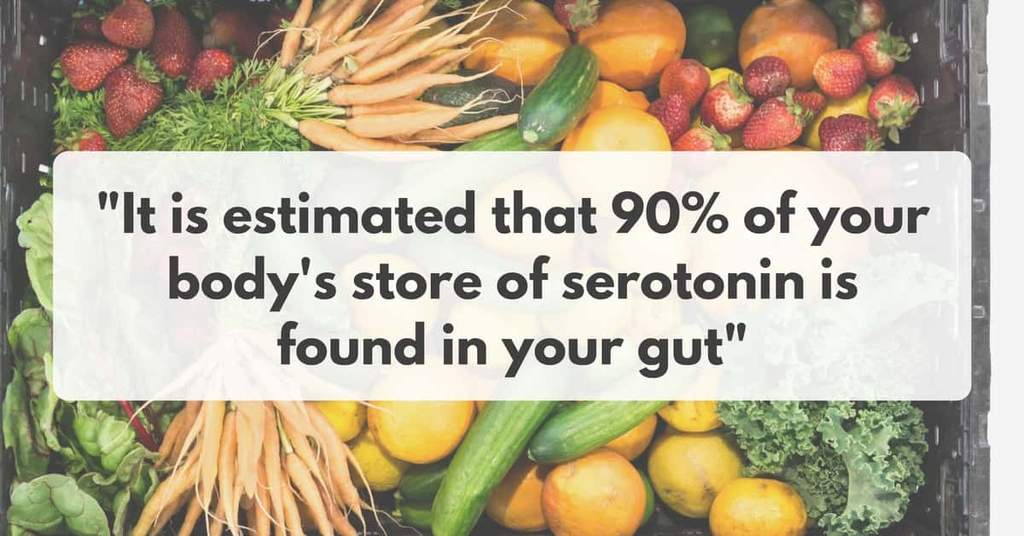
Mood
Serotonin has a huge impact on how well we feel. For example, it is linked to the degree of happiness we experience. There are several drugs that cause our brain to release more serotonin, including XTC and LSD. The enhanced release of serotonin is why many people feel incredibly happy, in love and open when taking these types of drugs. It has a direct effect on the brain and makes you feel much happier. This is the intoxication that many people experience when they take these drugs.
What to Avoid
Avoid caffeine in energy drinks especially. Caffeine actually suppresses serotonin. Energy drinks are packed with sugar, which triggers the same process as simple carbohydrates.
In conclusion
A lot of things affect your mood. What you eat, how you move, and how you view the world around you. Chemical ways to increase your serotonin level are certainly not necessary to feel happy and energized!
